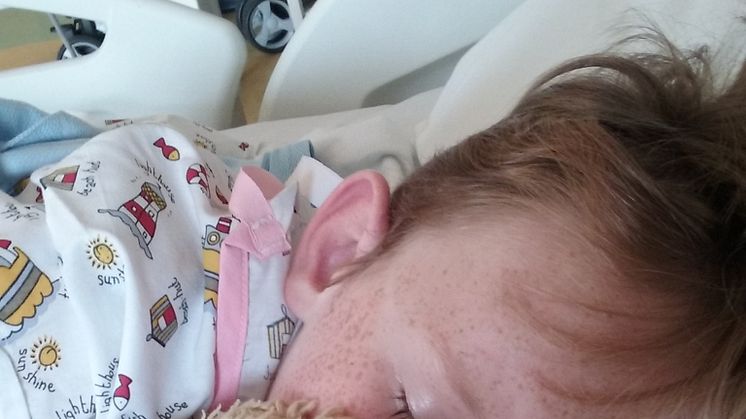
Press release -
Cornwall family urges parents and families to spot the signs of stroke in children
The Marsh family is urging parents and young people in Cornwall to learn about the signs of childhood stroke as a new guideline for parents launches today.
Jack Marsh, 8, had a fall and started vomiting violently as he played netball after school in September 2014. The school phoned 45-year-old mum Lisa and he was taken to the hospital in an ambulance. Jack continued to feel sick.
He was in hospital overnight and was about to be discharged the following morning when he had a stroke. He was taken in for a CT scan straightaway and the scan showed that he had had small strokes previously. He was transferred to Bristol Children’s Hospital for more support and rehab.
Jack had another stroke the year after. He was back at school and due a swimming lesson when one side of his face started to droop, was unable to raise one of his arms above his head and struggled with his speech.

Jack is now 10. He is on anti-coagulant medication and walks with a slight limp. He gets tired easily, struggles with his concentration and still experiences slight weakness on the left side of his body.
Jack’s mum said, “Jack’s determination to get better is very inspiring. Though he lost the use of his right side after the second stroke, he works incredibly hard at his recovery. I think about his stroke every day and wonder if this is the last time I see a healthy Jack. But he has come such a long way and I must put it behind me and carry on. Jack is due to go to secondary school soon and I couldn’t be more proud of my little boy.”

The Guideline, produced by the Royal College of Paediatrics and Child Health (RCPCH) and the Stroke Association, covers diagnosis and rehabilitation and includes signs for spotting strokes in children:
Most children experiencing a stroke will have symptoms recognised by the FAST test: Facial weakness, Arm weakness, Speech problems, Time to call 999
Some children and young people may complain of a headache and others may have seizures (fits) at the time of the stroke. New and sudden onset of vertigo, dizziness, neck pain or neck stiffness are also sometimes signs that a child or young person is having or has had a stroke.
Nausea/vomiting, fever or loss of consciousness can also be signs of a stroke in children, so do not discount these.
Dr Vijeya Ganesan, a paediatric neurologist and spokesperson for the Royal College of Paediatrics and Child Health, said: “Although much less common than in adults, stroke is a devastating childhood illness, leaving permanent effects on most affected children. Early recognition is important to direct children towards rapid diagnosis and treatment. Many children with symptoms or signs that suggest stroke may have other serious neurological disorders and could also benefit from the changes in approach recommended by the guideline. The guidelines also provide comprehensive information on how to best manage the long term needs of children, particularly rehabilitation.”
Juliet Bouverie, Chief Executive of the Stroke Association, said: “Childhood stroke is often extremely frightening and stressful for children and their families. Far too few people realise that a child can have a stroke, which means diagnosis and treatment can take longer than for older patients. Whatever age you are, when stroke strikes, quick diagnosis is vital.”
To find out more and download the guidelines visit www.rcpch.ac.uk/stroke-guideline
Topics










